A U.S. president called a Miami reporter ‘Haiti’s ambassador to world.’ Now, a new honor
Jacqueline Charles, a Pulitzer Prize finalist and Emmy Award-winning Haiti and Caribbean correspondent for the Miami Herald, has been awarded the 2024 Elijah Parish Lovejoy Award for Courage in Journalism from Colby College.
The award follows her honor Saturday at the 2024 Sunshine State Awards in Hollywood. The Society for Professional Journalism presented Charles with the National Association of Black Journalists’ South Florida Diversity Award for a collection of her recent work.
“We are the first drafters of history, and today I am able to write part of Haiti’s modern-day history, in particular. It’s nuanced, it’s complicated and it’s messy. But it’s also a story about promise, resistance and hope,” Charles said of her role documenting Haiti.
Colby, a private liberal arts college in Waterville, Maine, founded in 1813, honored the veteran reporter for her extensive reporting on Haiti that has included covering the nation’s natural disasters, its political turmoil and healthcare crises. The school has presented the Lovejoy since 1952.
“With courage and compassion, Jacqueline Charles ensures that the turmoil in Haiti and its effects on the people of that country remain visible to the world,” said Colby President David Greene in a statement. “Ms. Charles has spent her career revealing injustice and threats to humanity, just as Elijah Parish Lovejoy did.”
READ MORE: ‘Seeing Haitians as human beings.’ Herald’s Jacqueline Charles shares her experiences
Who was Lovejoy?
Martin Kaiser, chairman of the Lovejoy Advisory Board, said that Charles’ journalism represented the best of the ideals of its namesake, the 1826 valedictorian at Colby and a crusading abolitionist editor. Lovejoy, 34, was murdered by a mob in 1837 for his anti-slavery editorials. John Quincy Adams, the second U.S. president, called Lovejoy “America’s first martyr to freedom of the press.”
When “54 Miles” author Leonard Pitts Jr., the retired Miami Herald columnist, won the Lovejoy award from Colby in 2021, he was gratified. “Elijah was a 19th Century bad-ass in terms of publishing. This guy would refuse to stop publishing anti-slavery editorials in the paper he had in Alton, Illinois,” Pitts said at the time.
Of Charles, Kaiser said: “Her courage and fearless commitment to the truth has produced unequaled coverage of Haiti and the Caribbean. The committee was impressed with her relentless ground-breaking reporting through the perils of political unrest, human rights battles and natural disasters. She is the journalistic authority in one of the most difficult places in the world to do reporting.”
Covering Haiti’s earthquake
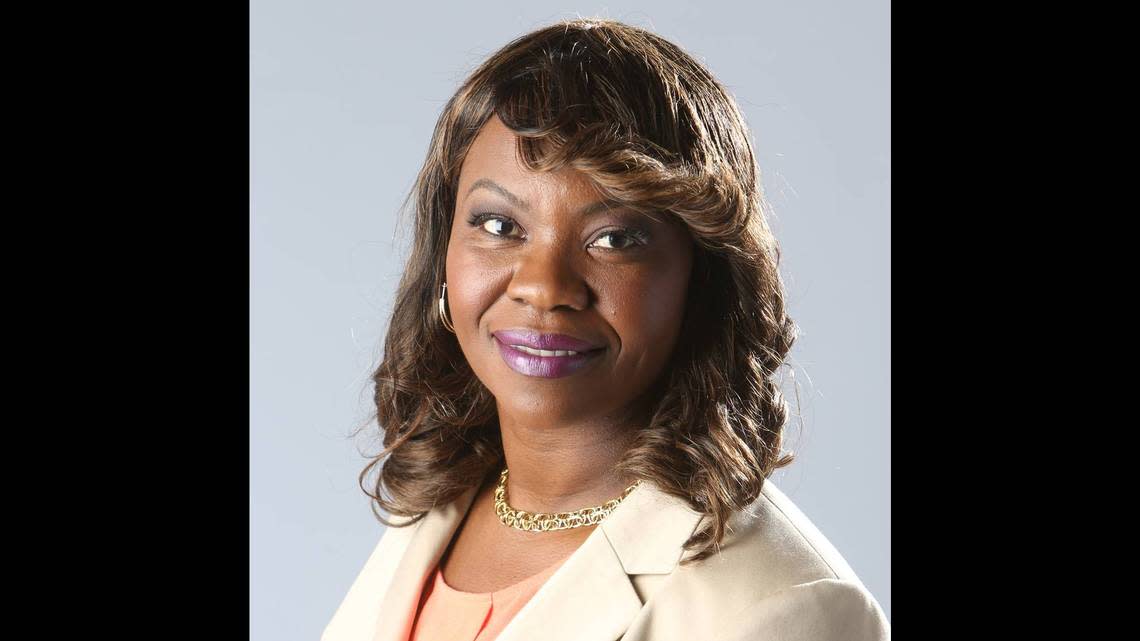
Charles was the first foreign reporter to land in Haiti after the earthquake on Jan. 12, 2010 — she had Haitian President René Préval’s cellphone number and got his permission for a plane from the U.S. to land on the devastated island.
She spent 18 months on the ground documenting the 7.0 magnitude quake in 2010 and its aftermath. She traced the painful recovery and the arduous reconstruction. She was named a 2011 Pulitzer Prize finalist and Journalist of the Year by the National Association of Black Journalists for that work.
READ MORE: Haiti’s 2010 Earthquake killed hundreds of thousands. The next one could be worse.
“What sets Jacquie apart is her deep-rooted commitment to the truth and her relentless pursuit of stories that matter. She has covered Haiti through some of its most challenging times, from political upheavals and natural disasters to human rights issues. Her reporting is not only thorough and insightful but also profoundly empathetic, giving a human face to the struggles and triumphs of the Haitian people,” said Alex Mena, executive editor for the Miami Herald and el Nuevo Herald.
‘Owns the Caribbean beat’
Dana Banker, the Miami Herald’s senior managing editor praises Charles’ relentless, resourceful traits as a reporter and her indefatigable nature.
“She owns the Caribbean beat like no other, and is consistently breaking news, forcing the pack to follow and holding global leaders accountable,” Banker said. “She cares deeply about our newsroom and good journalism, and despite her staggering work ethic, she finds time to mentor younger reporters, rarely declines a speaking engagement, and is quick to jump in whenever the team or the community needs her. It is ... nearly impossible to keep up with her.”
In 2011, Charles earned her regional Emmy for co-producing the Miami Herald’s feature-length documentary film “Nou Bouke: Haiti’s Past, Present and Future” for national broadcast on PBS. “Nou Bouke” offered a comprehensive look at Haiti after the earthquake.
Charles’ Miami Herald beginnings
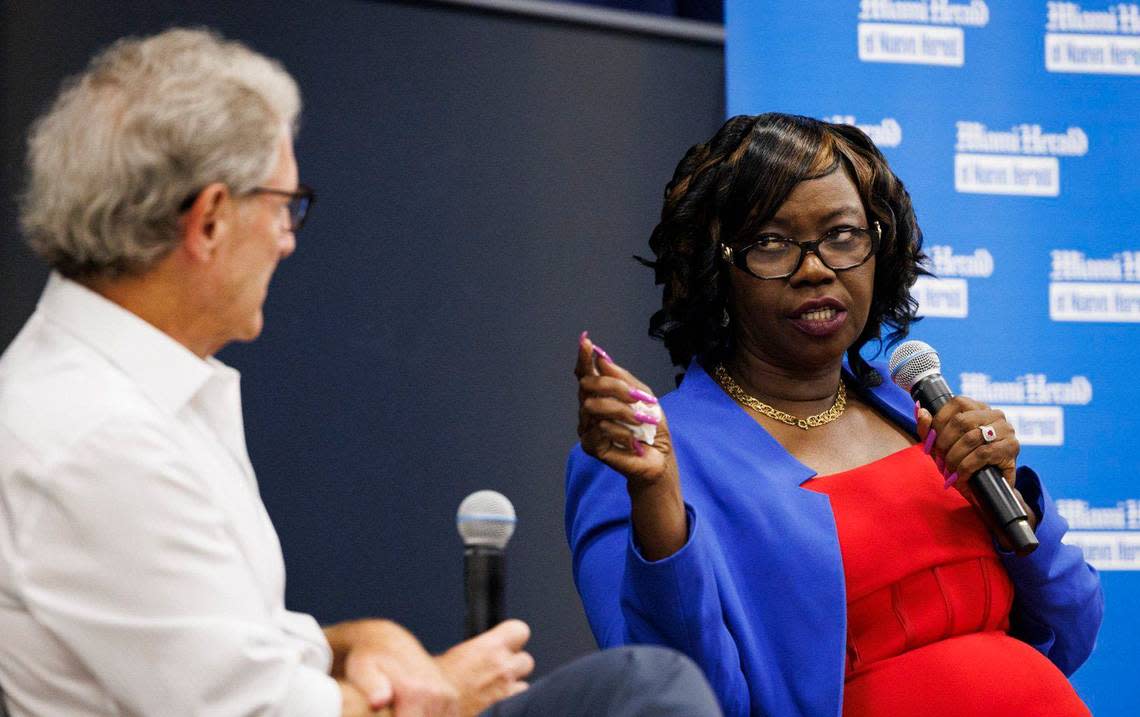
Charles, who moved with her Haitian mother and Cuban-American stepfather to Miami’s Overtown neighborhood at age 7 from the Turks and Caicos, earned her first byline as an intern in the Herald for compiling the School Scene column in the Neighbors section in 1987. She was still a teenager studying at Miami Jackson High School.
Charles, who speaks English, Creole and Spanish, joined the Herald full time in 1994 after graduating with a bachelor’s in journalism and mass communication from the University of North Carolina at Chapel Hill and initially covered Broward schools and government, and later the Florida Legislature, social services and immigration. She quickly came to the attention of local readers and world leaders.
Motivated by journalism
“I am first and foremost a journalist, and I am still excited about this profession,” Charles said. “I am driven by what this requires: the research, documentation, exploration, reporting and writing. When I am confronted with a story, it’s like being handed a puzzle and I have to figure it out.”
Charles and Miami Herald photojournalist José A. Iglesias published a four-part series in 2018, “Cancer in Haiti,” that chronicled the lack of cancer care on the island. The project won the June L. Biedler Prize for Cancer Journalism from the American Association of Cancer Research in 2019.
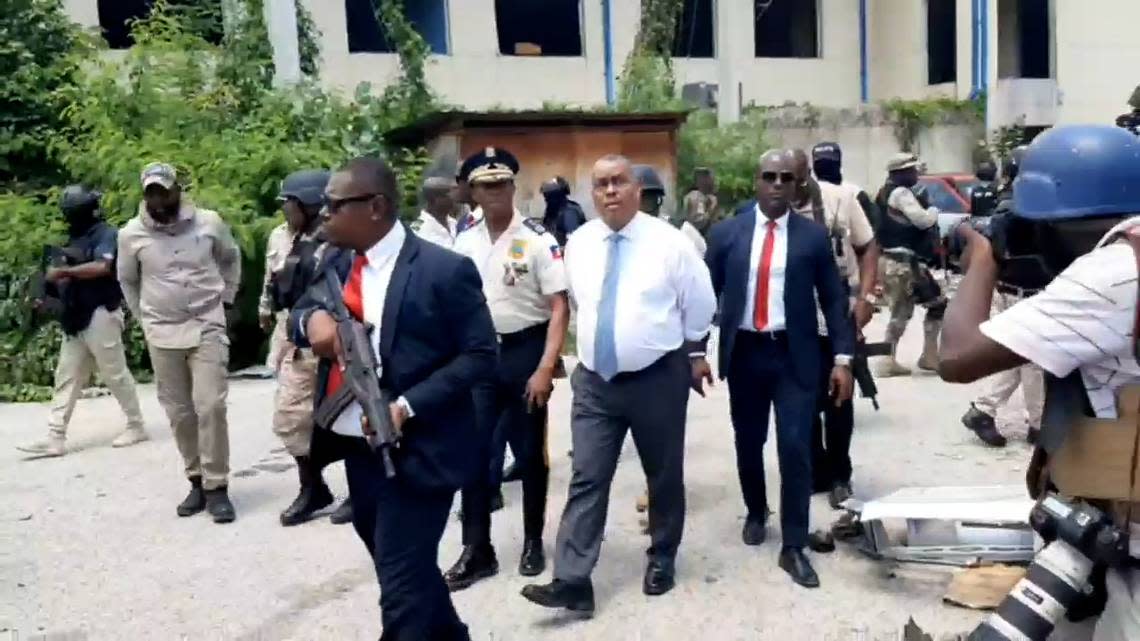
This August alone Charles covered Haiti’s struggles to elect a new president following the 2021 assassination of President Jovenel Moïse to a string of jail breaks that included prisoners indicted for the Moïse assassination.
KNOW MORE: Inmates escape from Haiti prison north of the capital in the third jail break in months
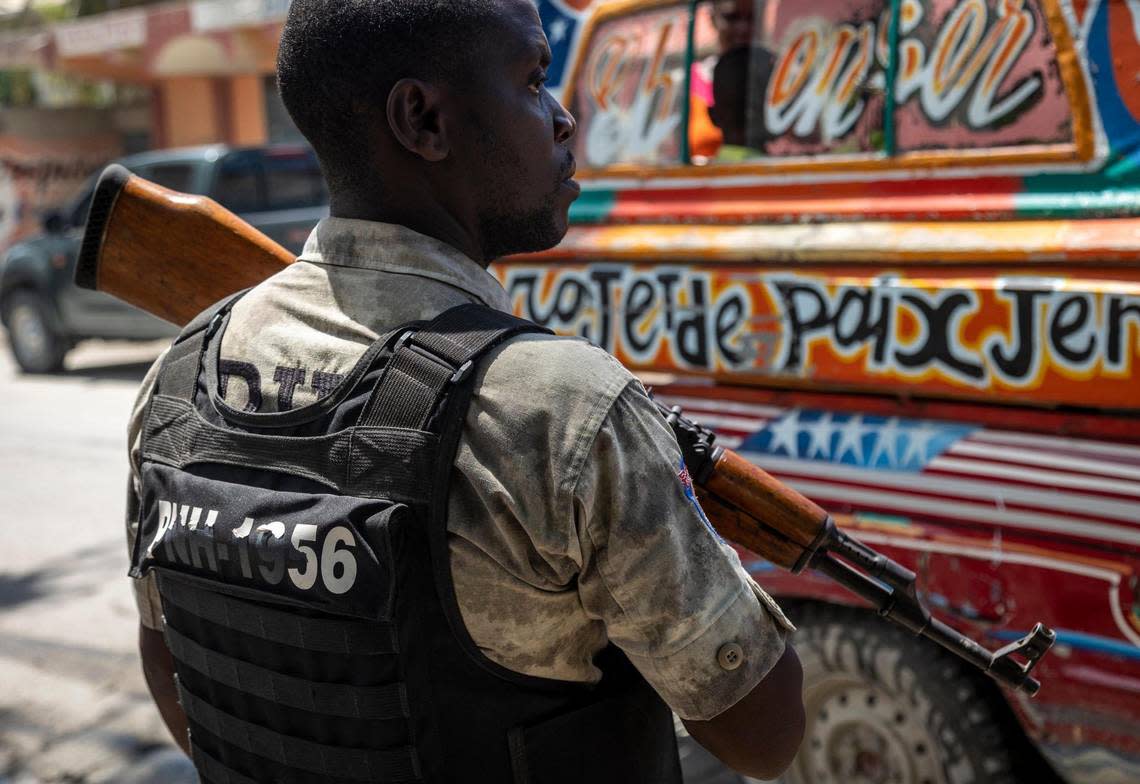
“This process still excites me: uncovering the facts, convincing someone who doesn’t know me to not only talk to me but to trust me based solely on my word, following a lead and getting the story. I love being the first to break a story, everyone knows I love a good scoop,” Charles said.
One of Charles’ first foreign-desk assignments as a full-time Herald reporter was covering the return of Haitian President Jean-Bertrand Aristide at the urging of U.S. President Bill Clinton in 1994.
“When you’ve tackled a difficult story, there is a sense of pride and accomplishment when you get to the finish line,” Charles said. “Either you are proud of the reporting that went into the article or the creative process of pulling it together in a compelling narrative that moves people — and at times, moves governments.
Like one particular head of government.
Charles and Bill Clinton
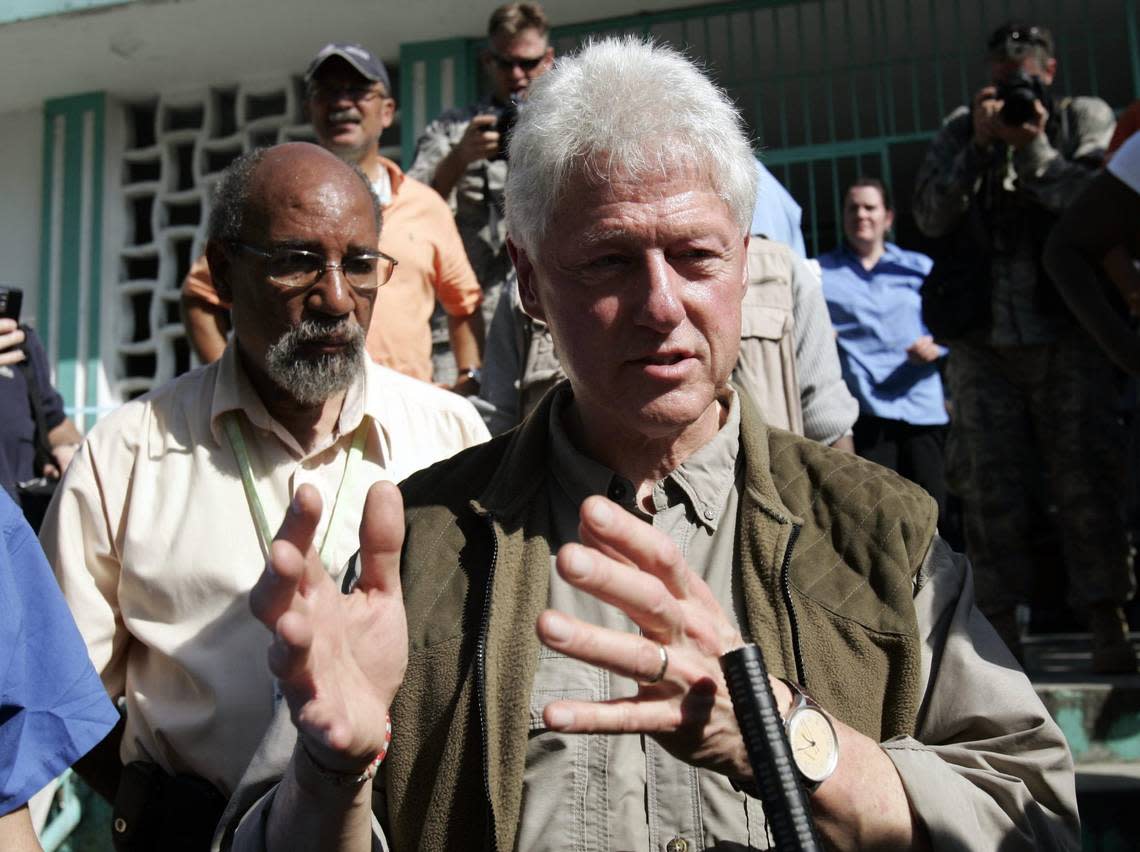
Clinton, who is known to still ring Charles from his limo for a chat while tooling around South Florida on his visits, referred to Charles as “Haiti’s ambassador to the world” in a widely reported comment.
This description happened right after the 2010 earthquake Charles said. She still has a recording of it somewhere, she said.
“President Clinton was in the courtyard of the State University Hospital or General Hospital, which had nearly completely collapsed and he was surrounded by reporters. I saw him, was pushing my way through the crowd to get closer to what he was saying, and he spotted me, stopped mid-way sentence and said, “There’s Jacquie. Ladies and gentlemen, let me introduce you to Haiti’s ambassador to the world.’
“He has always been an avid reader, and appreciates my work. While others have written all kinds of untruths, I was following and writing about his involvement in Haiti from day one. And he cares from the heart,” Charles said.
When is the presentation?
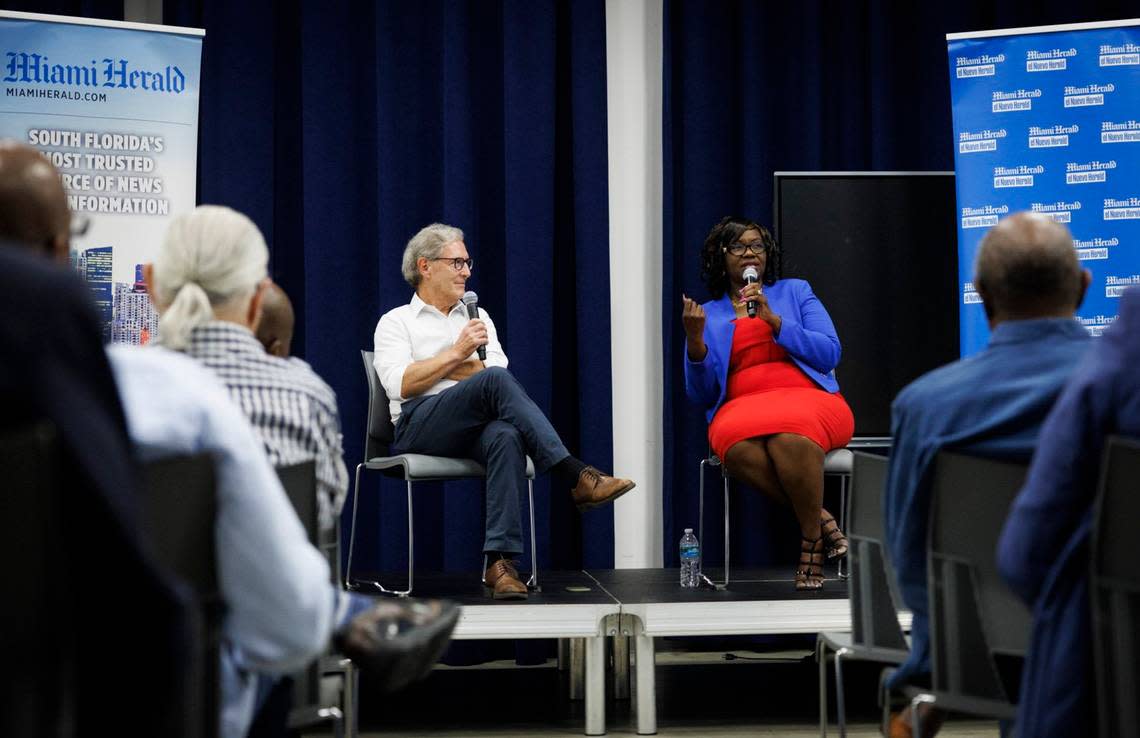
The public presentation of the Lovejoy Award will include a discussion between Charles and New York Times Investigative Correspondent Matt Apuzzo, a member of the Lovejoy Selection Committee in the Gordon Center for Creative and Performing Arts on Colby’s campus on Sept. 20.






